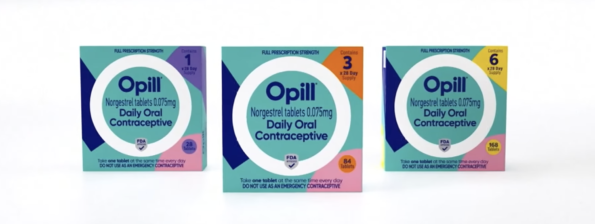FDA Approves Very First Non-Prescription Birth Control Pill Available Over The Counter

FDA Approves Very First Non-Prescription Birth Control Pill Available Over The Counter
The first hormonal contraceptive pill to be sold without a prescription in the United States is anticipated to hit the market early in 2024.
On Thursday (Jul. 13), the US Food and Drug Administration authorized the over-the-counter sale of Opill, a progestin-only birth control pill.
Dr. Patrizia Cavazzoni, director of the FDA’s Center for Drug Evaluation and Research, said,
“Today’s approval marks the first time a nonprescription daily oral contraceptive will be an available option for millions of people in the United States. When used as directed, daily oral contraception is safe and is expected to be more effective than currently available nonprescription contraceptive methods in preventing unintended pregnancy.”
Opill’s manufacturer, Perrigo, praised the FDA’s action as a “milestone” and a “giant leap for women’s empowerment.”
The company’s global vice president for women’s health, Frederique Welgryn, stated at a news conference on Thursday that Opill’s suggested retail price will be disclosed in the coming months. However, she said, Perrigo is “committed to ensuring that Opill is affordable and accessible to people who need it.”
At the meeting, Kelly Blanchard from Ibis Reproductive Health — a company that does research on sexual and reproductive health and has backed over-the-counter birth control pills — stressed how important it is that insurance companies cover Opill. She continued by saying that more has to be done at the state and federal levels to alter the laws so that over-the-counter medications can be reimbursed without cost-sharing.
The secretaries of the Treasury, Labor, and Health and Human Services are instructed by an executive order signed by President Joe Biden last month to “consider new actions to improve access to affordable over-the-counter contraception.”
Among the actions listed in a White House fact sheet about the order were convening pharmacies, employers, and insurers to talk about ways to increase access to affordable over-the-counter contraception; identifying promising practices regarding the coverage of over-the-counter contraception at no cost to patients; and offering guidance to support seamless coverage of over-the-counter contraception.
In a statement, the FDA said,
“Nonprescription availability of Opill may reduce barriers to access by allowing individuals to obtain an oral contraceptive without the need to first see a health care provider. Almost half of the 6.1 million pregnancies in the U.S. each year are unintended. Unintended pregnancies have been linked to negative maternal and perinatal outcomes, including reduced likelihood of receiving early prenatal care and increased risk of preterm delivery, with associated adverse neonatal, developmental and child health outcomes. Availability of nonprescription Opill may help reduce the number of unintended pregnancies and their potential negative impacts.”


 Previous Article
Previous Article Next Article
Next Article Condola Rashad & Chiwetel Ejiofor To Star In Religious Drama “Come Sunday”
Condola Rashad & Chiwetel Ejiofor To Star In Religious Drama “Come Sunday”  Nicki Minaj Releases “Barbie Tingz” & “Chun-Li” Videos
Nicki Minaj Releases “Barbie Tingz” & “Chun-Li” Videos ![Jussie Smollett’s New Family Cooking Series, ‘Smollett Eats’ [Teaser]](https://thejasminebrand.com/wp-content/uploads/2016/08/Screen-Shot-2016-08-18-at-6.53.05-AM.png) Jussie Smollett’s New Family Cooking Series, ‘Smollett Eats’ [Teaser]
Jussie Smollett’s New Family Cooking Series, ‘Smollett Eats’ [Teaser]  Michael Dunn Sentenced to Life in Prison, After Shooting 17-Year-old Over Loud Music
Michael Dunn Sentenced to Life in Prison, After Shooting 17-Year-old Over Loud Music  Drake Explains Wearing Black Face
Drake Explains Wearing Black Face  Common Inks Deal With HBO
Common Inks Deal With HBO  Traci Braxton – I Don’t Know Why Toni Braxton Kicked Me Off Her Tour!
Traci Braxton – I Don’t Know Why Toni Braxton Kicked Me Off Her Tour!  Body Cam Footage Reveals Illinois Officer Fatally Shooting Sonya Massey + President Biden & Ben Crump Speak Out
Body Cam Footage Reveals Illinois Officer Fatally Shooting Sonya Massey + President Biden & Ben Crump Speak Out